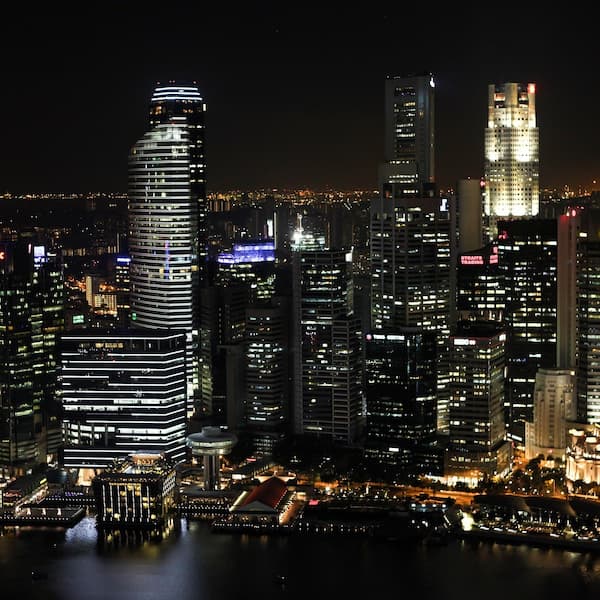Investment Strategies
Wealth Managers Positive On Emerging Markets

With expectations that the US Federal Reserve will make a series of interest rate cuts this year, and following the sharp move downwards in bond yields at the beginning of August, Paris-based Edmond de Rothschild Asset Management, together with other wealth managers, assesses the outlook and asset allocation.
According to Edmond de Rothschild Asset Management, the chances of the US Federal Reserve opting to start cutting rates in September is underpinned by mixed US data in recent weeks and confirmation that inflation is slowing.
The prospect of a rate-cutting cycle and a more nuanced view of the economic data helped risk assets rally and return to levels seen at the end of July.
The MSCI EM index had gained 0.73 per cent last week. India, China and Korea led gains, up 1.47 per cent, 0.62 per cent and 0.24 per cent respectively. Mexico, Brazil and Taiwan fell 5.17 per cent, 0.67 per cent and 0.12 per cent respectively.
As a result, the asset manager said it has returned to neutral fixed income weightings. Equity markets have performed well so it has also turned neutral again on equities as they are more likely to react to any adjustment in the pace of rate cuts or signs that the economy is slowing. Edmond de Rothschild is still neutral on the US dollar – weakness due to the start of the rate-cutting cycle seems to be fully discounted. The firm also remains upbeat on emerging market bonds and investment grade credit.
In China, Edmond de Rothschild highlighted how July industrial production increased 5.1 per cent year-on-year and retail sales grew 2.7 per cent year-on-year, mostly in line with expectations. The housing ministry also plans to allow local governments to buy unsold homes with the proceeds from issuing special bonds. They unveiled an action plan to promote large-scale equipment renewals in the energy sector. The Chinese electric vehicle giant BYD also announced plans to open a car production plant in Pakistan.
BYD is seen as a real force in the electric vehicle (EV) industry, not only within China but also on a global scale. BYD’s major export opportunities are in regions without strong domestic car brands, such as Australia, Israel, Russia, the Middle East, Latin America and Southeast Asia. In 2024, the International Monetary Fund recently upgraded China’s growth forecast to 5 per cent from 4.6 per cent, after a strong first quarter, and to 4.5 per cent in 2025.
Despite China's slowing economy and trade tensions, Maggie Sun, senior portfolio manager at Japan’s Sumitomo Mitsui DS Asset Management is optimistic about the country's outlook. She believes that Chinese equities are attractively valued. “The worst is now behind China, even if the property market might take longer than expected to recover significantly,” Sun told this news service. See more commentary here.
In India, Edmond de Rothschild emphasised how the domestic mutual fund industry saw an unprecedented influx of new investors in July. James Thom, investment director at abrdn New India Investment Trust, is optimistic about India’s outlook, highlighting how it is one of the world's fastest-growing major economies, backed by a resilient macro backdrop which includes a real estate boom, strong consumer sentiment in urban areas and a robust infrastructure capex cycle.
Expectations for a good monsoon season would be key for a pick-up in rural demand. The growth story is underpinned largely by supportive policies from the central government as well as a decade of painful but necessary economic reforms. The groundwork laid by these sweeping reforms has put India on a positive economic trajectory.
“Still, India faces some near-term risks, most of which are external. These include potentially higher global energy prices and a slowdown in the world economy. The key to taking advantage of this market's promise is bottom-up stock picking that is backed by fundamental research, which aligns well with how we invest,” Thom said.
“We expect our core quality holdings to continue to deliver resilient compounding earnings' growth over the medium term, come what may in terms of macro conditions,” he added.
The £445 million ($587 million) trust looks as though it will achieve long-term capital appreciation by investing in companies which are incorporated in India or which derive significant revenue or profit from India, with dividend yield from the company being of secondary importance.
Elizabeth Soon, head of Asia ex-Japan equities, and Huzaifa Husain, head of India equities, at PineBridge Investments are also positive about Chinese and Indian equities in 2024. While headline valuations might look expensive in India, Husain believes that the average hides a lot of granular opportunities available to a diligent, bottom-up stock picker. HSBC Global Private Banking maintains its overweight positions in Japan, India and South Korea, where it sees the best opportunities for tapping into Asia’s structural growth themes.
Meanwhile, Soon thinks that the divergence in valuations between China and the rest of Asia creates an attractive pool of investment opportunities. Despite the property market’s woes and concerns about weak consumption, Soon stressed that there are various alpha-generating opportunities in China. See more commentary here.